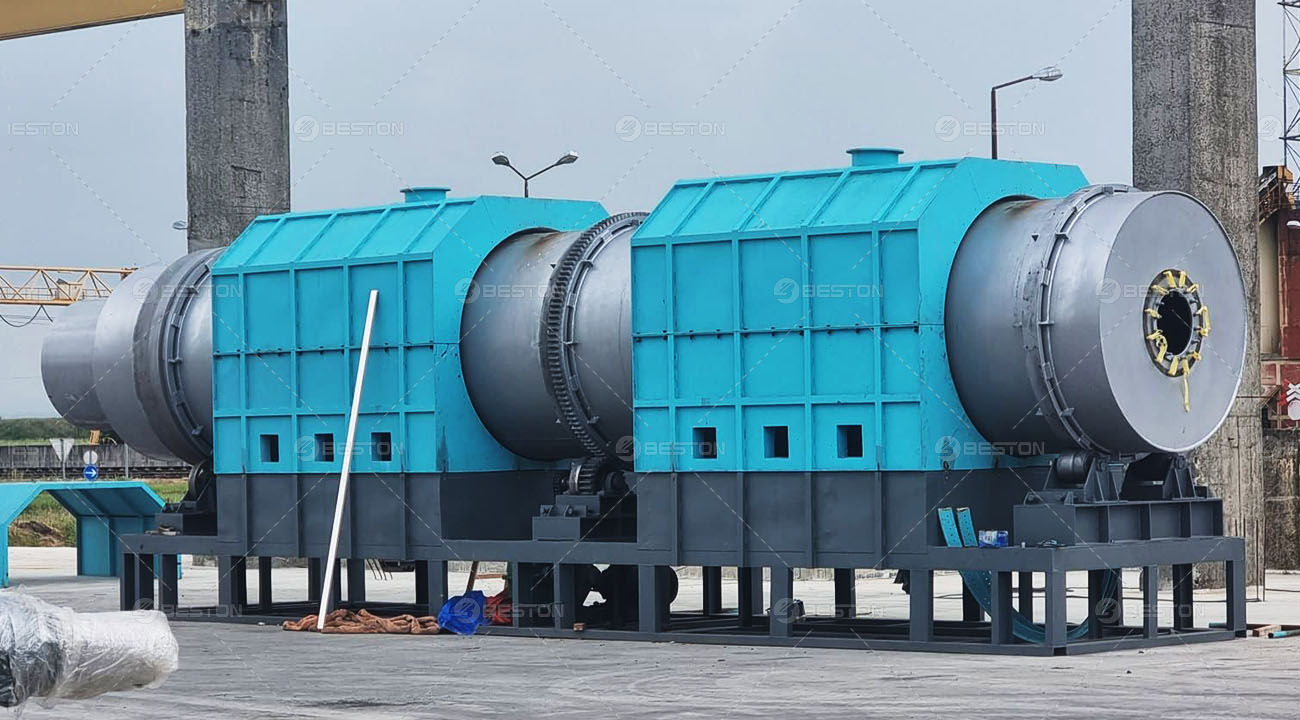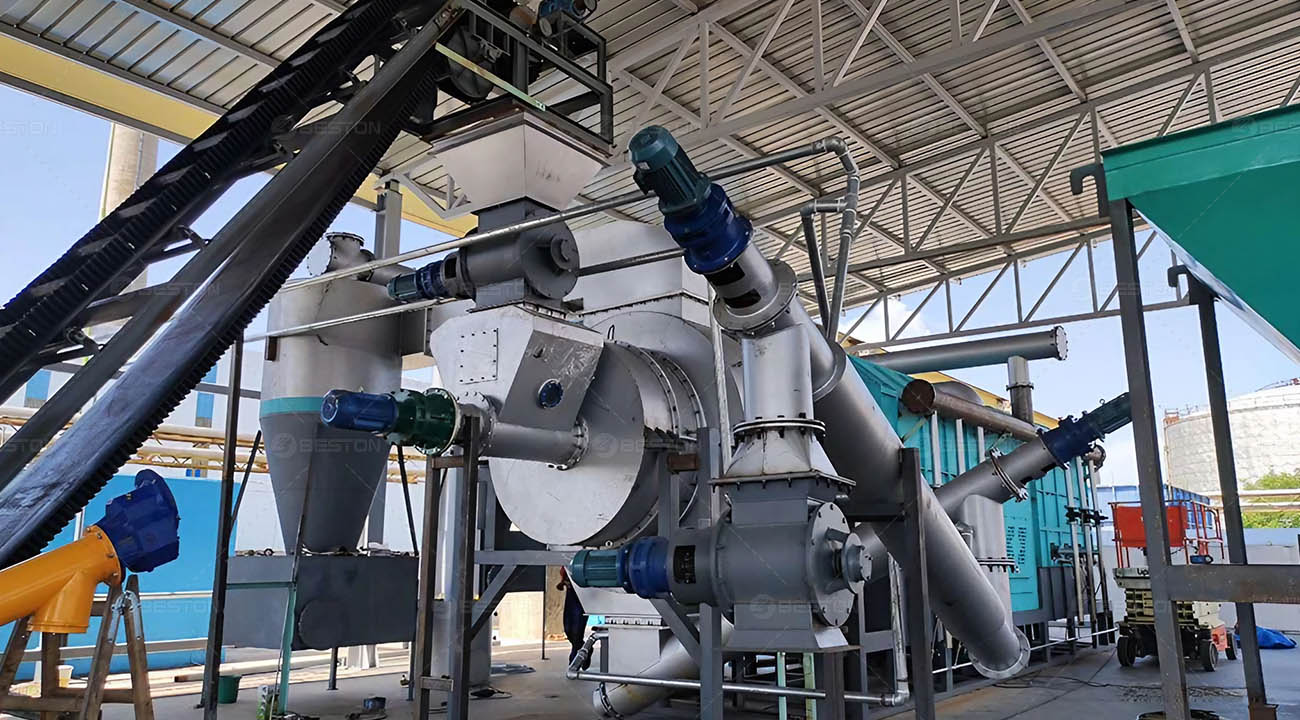In today’s environmentally conscious world, the demand for sustainable energy sources is at an all-time high. Among the myriad of alternatives, charcoal remains a staple due to its versatility and efficiency. For those venturing into the production of charcoal, acquiring a cost-effective charcoal making machine is paramount. This comprehensive guide elucidates the key considerations and strategies for purchasing a high-quality, economical charcoal making machine.

Understanding Charcoal Making Machines
Charcoal making machines, also known as biochar pyrolysis equipment, are sophisticated devices that convert biomass into charcoal through pyrolysis. This process involves the thermal decomposition of organic material at elevated temperatures in the absence of oxygen. The result is a carbon-rich product with various applications, from fuel to soil amendment.
Types of Charcoal Making Machines
There are several types of charcoal making machines available, each with unique features and capabilities. Understanding these types will help in making an informed decision:
- Batch Charcoal Making Machine: These machines operate in discrete cycles, processing a set amount of biomass per batch. They are ideal for small-scale production.
- Continuous Charcoal Making Machine: Designed for large-scale production, these machines operate non-stop, allowing for continuous feed of biomass and extraction of charcoal.
- Mobile Charcoal Making Machine: These portable units are perfect for on-site production, making them suitable for agricultural or forestry operations.
Key Considerations for Purchasing a Charcoal Making Machine
When investing in a charcoal making machine, several critical factors must be evaluated to ensure cost-effectiveness and operational efficiency.
1. Charcoal Making Machine Price
The charcoal making machine price is a pivotal consideration. While it is tempting to opt for the cheapest option, it is essential to balance cost with quality and functionality. Machines with advanced features and higher durability may have a steeper initial cost but offer long-term savings through reduced maintenance and higher output.
Factors Influencing Price
- Capacity: Machines with higher processing capacities generally command higher prices.
- Technology: Advanced technologies, such as automation and emission control systems, can increase the price.
- Material Quality: High-grade materials used in construction enhance the machine’s longevity and performance but also raise the cost.
2. Production Capacity
Assessing the production capacity of a charcoal making machine is crucial. This metric indicates the amount of biomass the machine can process within a specific timeframe, typically measured in kilograms or tons per hour. Aligning the machine’s capacity with production goals ensures operational efficiency and cost-effectiveness.
3. Energy Efficiency
Energy consumption is a significant operational cost for charcoal production. Machines with high energy efficiency reduce electricity or fuel costs, enhancing overall profitability. Look for machines with energy-saving technologies, such as heat recovery systems, which reutilize waste heat to minimize energy usage.
4. Feedstock Compatibility
Different charcoal making machines are compatible with various types of biomass, including wood chips, coconut shells, rice husks, and more. Ensuring the machine can process the intended feedstock optimally is essential for achieving high-quality charcoal and maximizing output.
5. Environmental Impact
Compliance with environmental regulations is not only a legal requirement but also a responsible business practice. Machines equipped with emission control systems, such as scrubbers and filters, minimize pollutants released during pyrolysis, ensuring a cleaner production process.
6. Durability and Maintenance
A robust and durable charcoal making kiln reduces downtime and maintenance costs. Consider machines made from high-quality materials that withstand high temperatures and corrosive environments. Additionally, assess the availability of spare parts and the manufacturer’s support services to ensure long-term reliability.
Evaluating Manufacturers and Suppliers
Choosing a reputable manufacturer or supplier is as crucial as selecting the right machine. Here are some guidelines to help evaluate potential vendors:
1. Reputation and Experience
Manufacturers with a proven track record and extensive experience in the industry are more likely to provide reliable and efficient machines. Customer reviews, industry awards, and certifications can offer insights into a manufacturer’s reputation.
2. After-sales Support
Comprehensive after-sales support, including installation, training, and maintenance services, ensures the smooth operation of the charcoal making machine. A responsive customer service team can help address issues promptly, minimizing downtime.
3. Warranty and Guarantee
A solid warranty and guarantee policy reflects the manufacturer’s confidence in their product. It also provides financial protection against potential defects and malfunctions, ensuring peace of mind for the buyer.
Financial Considerations and Cost Analysis
Purchasing a charcoal making machine is a significant investment. Conducting a thorough cost analysis helps in understanding the total cost of ownership and potential return on investment (ROI).
1. Initial Investment
The initial purchase price of the machine includes the cost of the equipment, transportation, installation, and any necessary infrastructure modifications. Obtaining detailed quotes from multiple suppliers allows for comparison and negotiation.
2. Operating Costs
Operating costs encompass energy consumption, feedstock supply, labor, and maintenance expenses. Machines with lower operating costs may have a higher initial price but offer savings over time, enhancing overall cost-effectiveness.
3. Revenue Potential
Estimating the revenue potential involves calculating the expected output and market price of the produced charcoal. High-quality charcoal with consistent properties commands a higher market price, increasing profitability.
4. Payback Period
The payback period is the time required to recoup the initial investment through profits generated by the charcoal making machine. Shorter payback periods indicate a more attractive investment. Professional charcoal making machine manufacturers will provide you with detailed ROI analysis. You can consult Beston Group Co., Ltd. for a detailed profitability analysis.
Future Trends in Charcoal Production
The charcoal production industry is evolving with advancements in technology and increasing environmental awareness. Staying abreast of future trends can help in making informed purchasing decisions.

1. Automation and Smart Technology
Automation in charcoal making machines enhances efficiency and precision. Smart technology enables real-time monitoring and control of the production process, reducing human error and optimizing performance.
2. Eco-friendly Innovations
Emerging eco-friendly innovations focus on reducing the carbon footprint of charcoal production. Technologies such as carbon capture and storage (CCS) and advanced emission control systems are becoming more prevalent.
3. Diversification of Feedstock
Research and development efforts are expanding the range of biomass that can be efficiently converted into charcoal. Utilizing agricultural waste and non-traditional feedstock enhances sustainability and reduces waste.
4. Government Regulations and Incentives
Increasingly stringent environmental regulations and attractive government incentives are shaping the charcoal production landscape. Staying informed about policy changes and subsidy opportunities can provide a competitive edge.
Conclusion
Investing in a cost-effective charcoal making machine requires careful consideration of various factors, including price, capacity, energy efficiency, and environmental impact. By evaluating reputable manufacturers, conducting thorough cost analyses, and staying informed about industry trends, businesses can make informed decisions that align with their production goals and sustainability objectives. The right charcoal making machine not only enhances profitability but also contributes to a cleaner, more sustainable future.